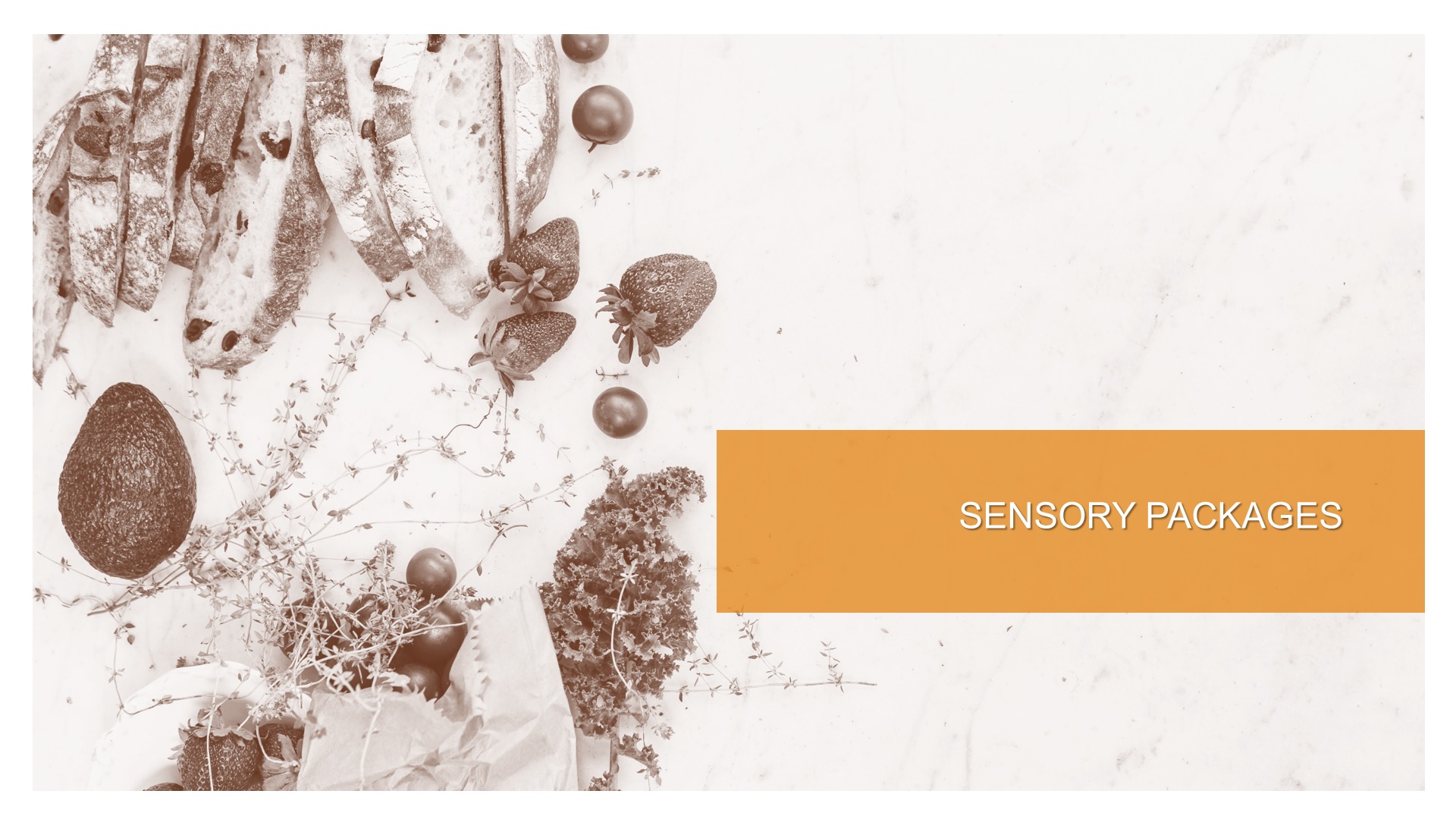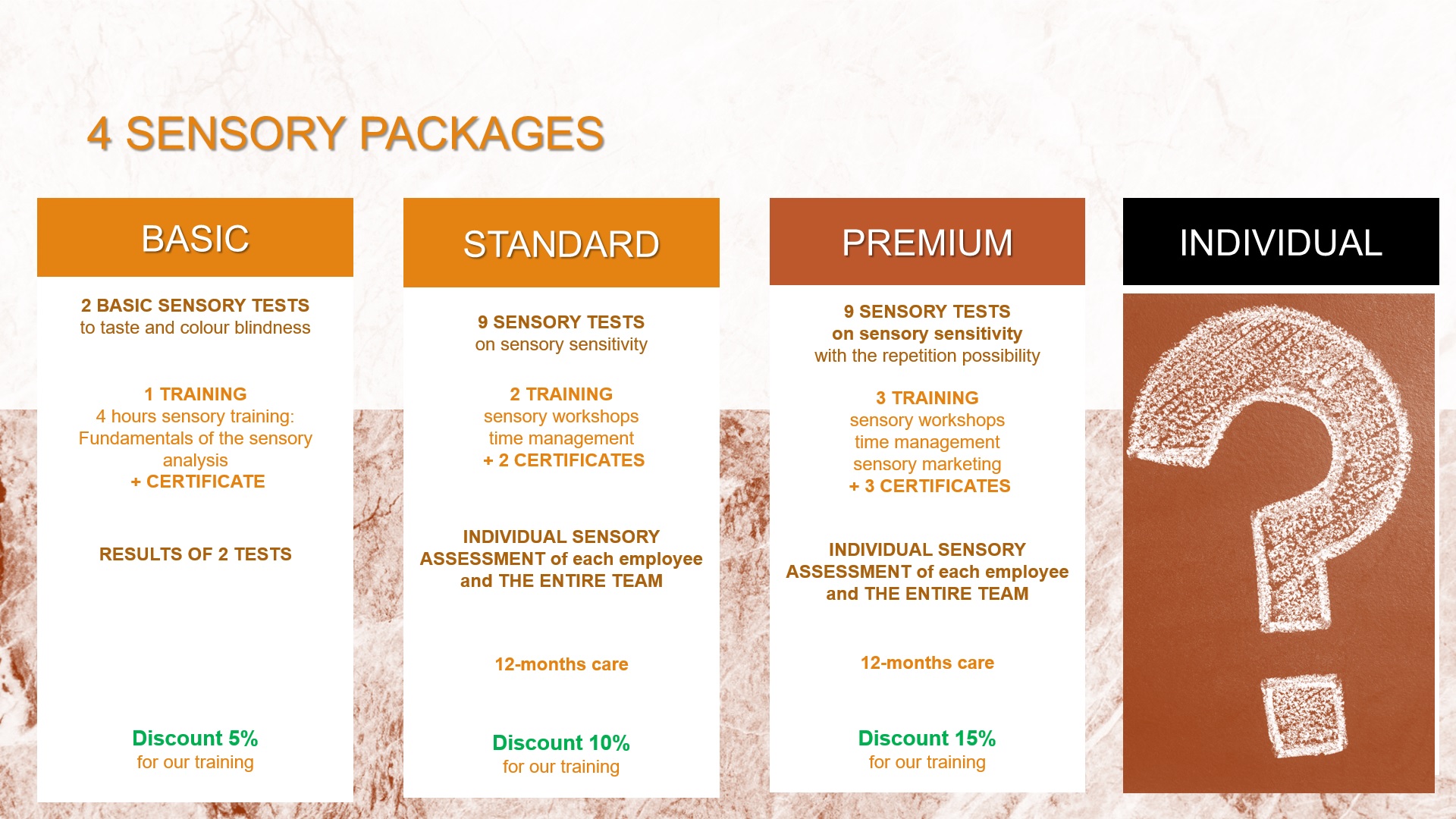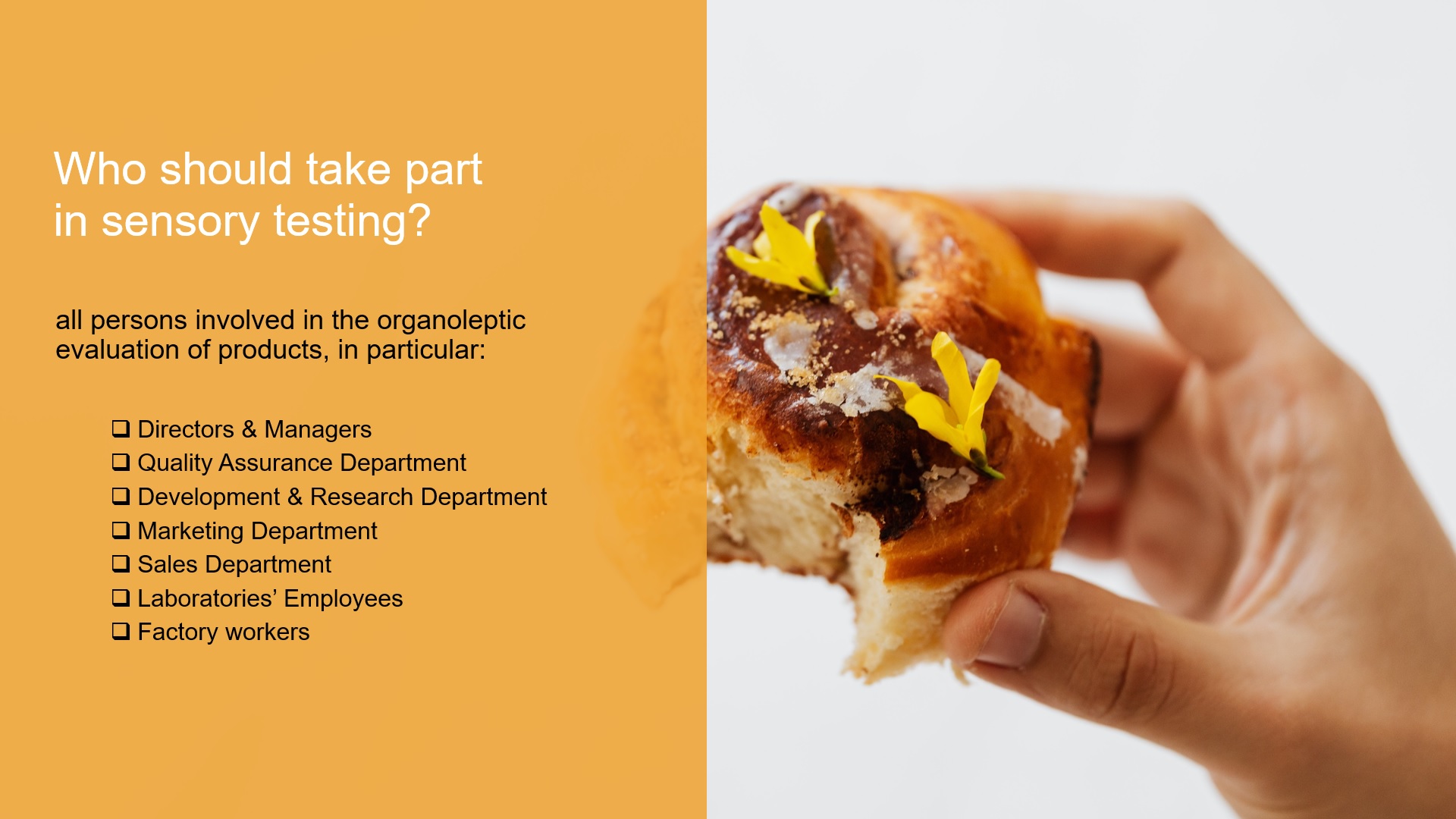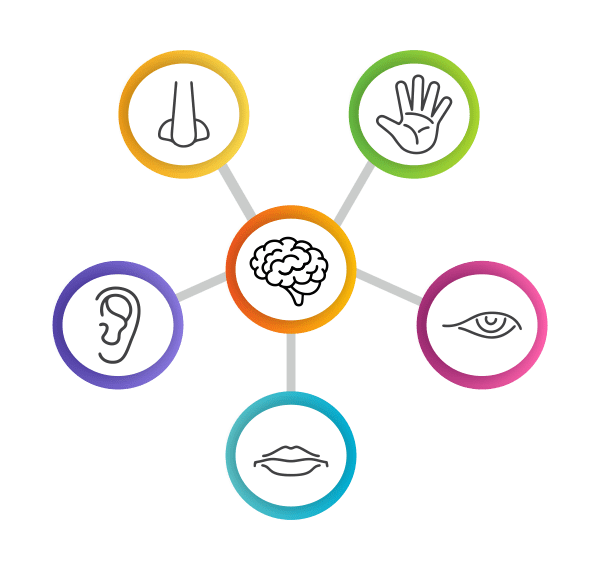
SENSORY PACKAGES
We offer our clients continuous care in the field of sensory analysis combined with the possibility of using our training.
Each package consists of professional sensory tests for sensory sensitivity.
Sensory packages can be additionally extended with a training part, sensory care and an attractive discount in the next training sessions.
SENSORY PACKAGES – 4 VARIANTS TO CHOOSE:
BASIC PACKAGE
includes:
2 BASIC SENSORY TESTS for colour and taste blindness
1 TRAINING: 4-hour sensory training in the basics of food sensory analysis
5% discount entitling you to take advantage of the discount on training organized by Consumer Insight Consulting
STANDARD PACKAGE
includes:
9 SENSORY TESTS:
- Verification tests for the ability to recognize tastes in liquid solutions (basic taste test)
- Verification tests for the ability to recognize colours
- Verification tests for the ability to recognize odours & memorizing odours
- Verification tests for the ability to use scale
- Test for ranking
- Test for the ability to detect differences between products
- Test to detect differences in intensity of the taste
- Test to check descriptive skills and objectivity
2 TRAINING COURSES: sensory workshop + time management
10% discount entitling you to take advantage of the discount on training organized by Consumer Insight Consulting
PREMIUM PACKAGE
includes:
9 SENSORY TESTS (1 repetition possible):
- Verification tests for the ability to recognize tastes in liquid solutions (basic taste test)
- Verification tests for the ability to recognize colours
- Verification tests for the ability to recognize odours & memorizing odours
- Verification tests for the ability to use scale
- Test for ranking
- Test for the ability to detect differences between products
- Test to detect differences in intensity of the taste
- Test to check descriptive skills and objectivity
3 TRAINING COURSES: sensory workshop + time management + sensory marketing
15% discount entitling you to take advantage of the discount on training organized by Consumer Insight Consulting
INDIVIDUAL PACKAGE
Create your own SENSORY PACKAGE based on our service and training offer tailored to the needs of your company.
You know best what you need and we will try to help you.
The price of the package depends on the services included in it, the number of people and is subject to individual assessment.
Why is it worth carrying out regular sensory tests checking the sensory sensitivity among your employees?
The answer is simple. If you care about proper quality control of the offered products, employees should regularly undergo sensory tests verifying their sensory ability (I recommend at least once a year).
In order to assess the products’quality, an organoleptic assessment is made using human senses (sight, smell, taste, touch, hearing). In this way, sensory discriminants are investigated, which are one of the main measures of food quality. Sensory attributes: visual, flavour and aroma of products influence the consumer’s perception of the product and, consequently, are critical factors determining the choice of food, chemical products, tobacco products etc. This assessment is made by the employees.
And here it should be remembered that people have different sensory predispositions, and among them there are people who, due to very low sensory sensitivity or certain limitations, such as colour blindness and taste blindness, should not make an organoleptic evaluation of products. Such people are not able to properly assess the product’s quality but for some reasons still often participate in tastings and make decisions.
Colour vision deficiency, commonly known as colour blindness, is a colour recognition disorder. In humans, it manifests itself as the inability to perceive differences between some or all of the colours that are normally perceived by other people. Colour vision deficiency is usually a congenital, genetically determined defect inherited recessively in conjunction with the X chromosome. Therefore, it affects men much more often (approx. 8%) than women (approx. 0.5%). The disorder can also be the result of damage to the visual tract from the retina to the cortex of the brain, as well as the side effect of drugs or chemicals.
The same is the case with taste blindness. A person with this disorder is unable to partially or completely distinguish individual tastes while eating something. These disorders lead to a complete abolition of the taste sensation, but also to the weakening or intensification of the perception of taste stimuli. Some of the causes of this problem lead to a transient taste disturbance, while others may lead to a permanent loss of taste.
Nowadays, it should be also remembered that, unfortunately, some people recovering from COVID-19 often suffer from long-term disturbances of the senses and they experience fake smells and tastes. Among them there are those who struggle for a long time with dysosmia, that is, impairment or a change in the perception of olfactory sensations. For example, they complain that the meat “smells like petrol”, they smell “rotting apples” when drinking prosecco. There are much more odour disorders, according sientists and doctors, after examination COVID-19 survivors. Sometimes odour disorders can be so strong that they effectively hinder normal functioning.
In order to eliminate such people from the decision-making process in matters of product quality, sensory tests for sensory sensitivity are carried out. Thanks to the tests, we can select people with the correct sensory abilities and thus, if possible for a given company, create the best possible product evaluation team, ensuring that a correct organoleptic assessment is made, which translates into product quality at every stage of its cycle.
However, this does not mean that people with very low sensory sensitivity or limitations should be completely excluded from the organoleptic evaluation, but their opinion should be neither crucial nor decisive.
As part of Consumer Insight Consulting, we conduct sensory tests both at the client’s place or outside, and we evaluate each person individually and the entire team.
We also carry out tests as part of sensory workshops, which additionally increase the awareness of what sensory analysis of food is, how it can be used at work, and teach how to make a proper organoleptic assessment.


